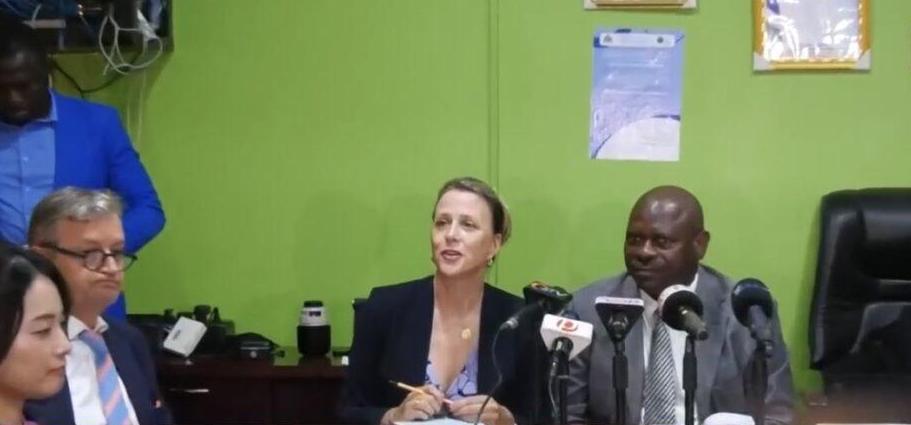Africa-Press – Gambia. The International Monetary Fund (IMF) has reached a staff-level agreement with The Gambia on the fourth review of its Extended Credit Facility (ECF) arrangement, originally approved in January 2024. Subject to approval by the IMF Executive Board, the agreement will unlock a disbursement of US$17.1 million, bringing total funds released under the arrangement to approximately US$68.2 million.
In parallel, The Gambia and the IMF have agreed on two critical reform measures under the Resilience and Sustainability Facility (RSF) to strengthen the country’s climate resilience. Completion of one reform action ahead of schedule is expected to trigger RSF disbursements reaching about US$21.3 million.
The IMF Executive Board is expected to consider the review and proposed disbursement in early December 2025.
Eva Jenkner, who led the IMF mission to The Gambia, described the country’s performance under the ECF as “satisfactory.” She noted that six of the seven performance criteria and all four indicative targets for June 2025 had been met. Additionally, eight of ten structural benchmarks—focusing on revenue mobilisation, public financial management, and governance—were achieved, with the remaining two expected to be completed by the end of October and November 2025.
Ms. Jenkner commended the Gambian government for its commitment to strengthening governance and implementing anti-corruption reforms, particularly initiatives aimed at improving access to information and fostering a conducive environment for private-sector-led growth.
“2025 wouldn’t be an easy year, but as we discuss with the government, it is ready to take tough steps to ensure the reform program remains on track. During the mission, we also agreed on the perimeters of the 2026 budget. It will aim to continue fiscal consolidation and ensure they abide by the sustainability of public financing,” she said.
She further noted that while “the road ahead remains long,” the IMF stands ready to support The Gambia’s development journey.
Ms. Jenkner reaffirmed that The Gambia’s public debt remains sustainable—a key requirement for continued IMF support. She emphasized the importance of maintaining ongoing fiscal discipline and prudent debt management to ensure macroeconomic stability.
“We are also very aware of the potential impact on the social sectors. Under the program, we have a social indicator where we monitor poverty-reducing spending,” she added.
Finance Minister Seedy Keita praised the IMF and all stakeholders involved in concluding the fourth review. While acknowledging fiscal pressures related to expenditure, Minister Keita noted strong revenue performance as a key factor keeping the programme on track.
“The GRA has done phenomenally well; the revenue is performing more than we expected, and that projection is likely going to continue,” he said.
Minister Keita reaffirmed the longstanding partnership between The Gambia and the IMF, noting the organisation’s continued financial assistance, policy guidance, and technical support in strengthening reforms, stabilising the economy, and building resilience to climate-related shocks.
For More News And Analysis About Gambia Follow Africa-Press






